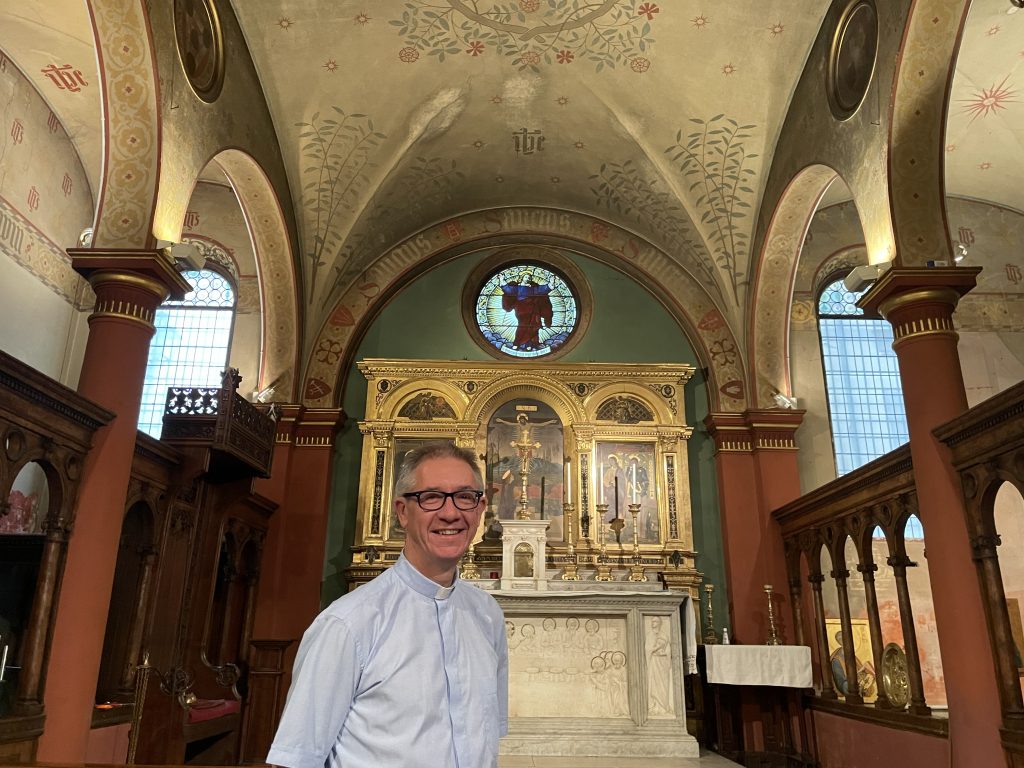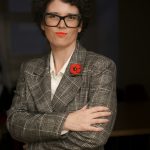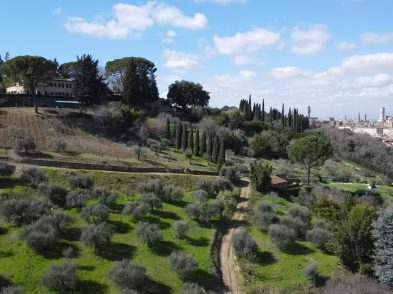We recently sat down with Chris Williams, the reverend of St. Mark’s English Church since June. Chris speaks about adjusting to Italy as well as his aspirations for St. Mark’s.

How are you settling in?
Slowly, because there’s so much to do in the church and in the house. When you know you’re going to be somewhere for only a certain period of time, it’s important to make that place home sooner rather than later. We’re getting there!
St. Mark’s is a religious and cultural centre for the English-speaking community in Florence. How do you blend these different purposes of the church?
The church is a community. Churchgoers are people who are connected by their faith, but you still need all the things that make life life. We can create opportunities for people to gather and get to know each other. I do anything and everything I can to foster that, so when people come here they feel safe and that they belong. One thing that’s motivated me for years has been this image in the Bible from Saint Paul about the church as the body of Christ. Paul likens each person within the church as being parts of the body. We have the hands and the eyes and the ears. Paul points out that the hand and the eye are different from each other, but they are not in competition, rather they need each other and have different purposes and roles. Diversity to me is built into the body. That’s why it’s great coming to such an inclusive church. We need to accept everybody, whoever they are and wherever they are from…The challenge is to find where we all fit in.
We are used to certain activities at St. Mark’s, like the opera nights as well as cultural gatherings. Are any changes afoot?
I won’t change what we are used to, but I’d like to add some variations. Someone came here the other day who is very keen on contemporary jazz. I thought, I don’t know the last time we had jazz in St. Mark’s. When my wife and I were at another church, we started a ballroom and Latin American dance class. Whether there are the legs for that here, I don’t know, but it’s an option. Never say never! I’m up for exploring options because culture must be varied as human beings engage at all levels. If I listened to something out of choice, for example, it would probably be 1980s contemporary rock, although I have grown a love for choral and church music over the last 15 years or so. Basically anything’s on the table, but we must never lose the essence of what St. Mark’s is.
How long is your appointment in Florence for?
I’ve got funding for five years as the chaplain for St. Mark’s Florence and Holy Cross Bologna. I go there every other week by train and take a service at four in the afternoon. There’s a good community membership in Bologna, about 10-20 people every week and probably more regulars there than Florence. Most people that come to St. Mark’s are currently tourists. Like other churches, we have been affected by the experiences of the last two years. A couple of people have become Catholic; others have just not come back again. It’s hard to know where we’re at congregation-wise, but we haven’t had fewer than 35 people every Sunday and we had 100 for the memorial service for the Queen. What’s been encouraging is that we’ve had a few 20-somethings turn up, who are living and working in Florence. St. Mark’s is a surprisingly young church. Our Administrator and Director of Music attract people their own age.
Tell me a bit about your journey.
I lived in London for 36 years. I was born there, met my wife there and had my kids there. Right from the get-go, my parents were involved in the Pentecostal Church in Bromley. My journey changed when I went to Spurgeon’s, a Baptist college in London, to study a theology degree. With any sort of academic work you are forced to think about your faith and engage from a much broader perspective than living within a church where you are in a bubble really. I graduated in 1996. Instead of going back into the Pentecostal Church, I became a full-time pastor in an Evangelical Anglican Church. While I was there, I decided to become Anglican, so I applied and was accepted for training to be a priest at St. John’s College, Nottingham to do a post-grad diploma and Master’s in Theology. On leaving there in 2006, I went to Haslemere as a curate at a middle of the road Anglican Church in the lovely, leafy Surrey. Then I moved out to Godalming, where I completed my curacy for 18 months. And after Godalming, I got my first post in Liss, Hampshire, where I was the rector for 13 years.
You’ve always been in the UK, so why Florence?
That’s easy to answer. We came here for my sabbatical in 2018. My wife and I spent six weeks in Europe and six weeks backpacking around South East Asia. But in Europe we spent five weeks here in Florence. We fell in love with the city. I’d say it was the best five weeks of my life. Five weeks of just being able to be. No work. No commitments. We both loved that. The weather was perfect all through October.
Do you think anything’s changed in the city since you were last here?
It’s massively changed in my experience because now I am here working. We haven’t had a moment to stop and enjoy Florence for Florence’s sake: the art, culture and architecture. Yesterday, we went to see Jason Arkles’ exhibition just down the road. He used to be here as a churchwarden.
Is there anything you would like to get out to the English-speaking community?
We’re here. We’re hoping to open the doors Tuesday to Friday 10am-noon and 2-4pm. That will be a new thing. When we opened for the Queen, we had 150 people walk in here every day, which surprised us. People can light candles, sit and pray, walk around the church, soak in the history or talk to someone. If anyone would like to lend a hand, we’re looking for people to sit here and be with the church. It will be enormously helpful. It will make us accessible to the public and help us to use the building better for the purpose for which it was created.








